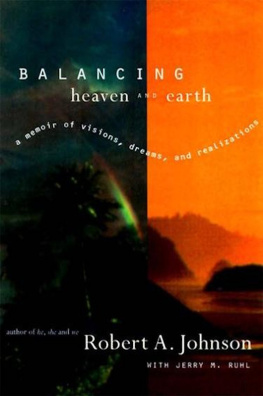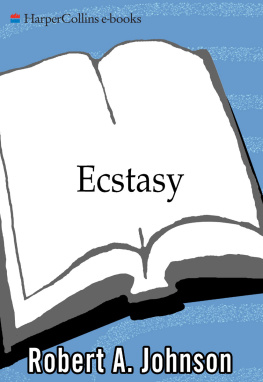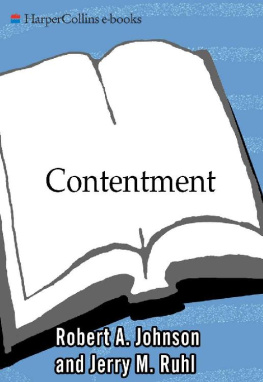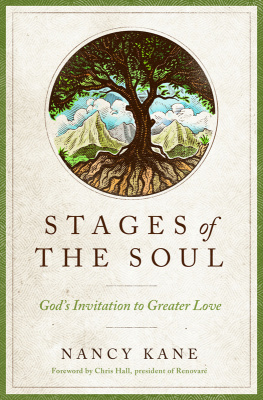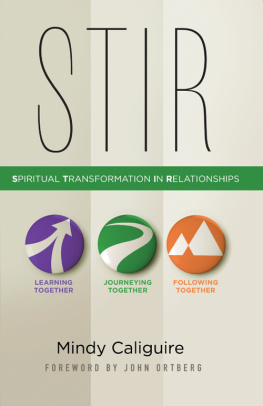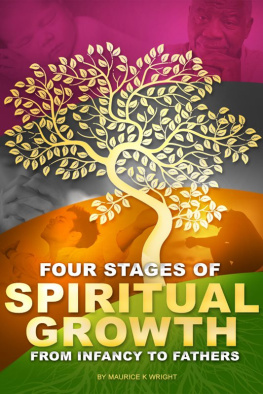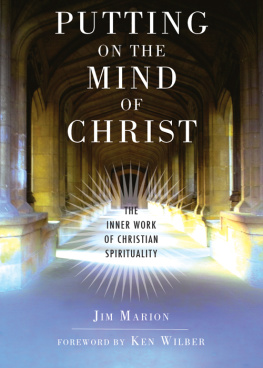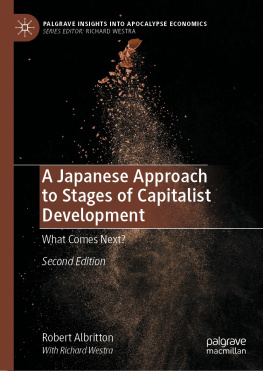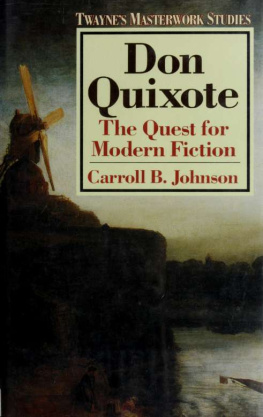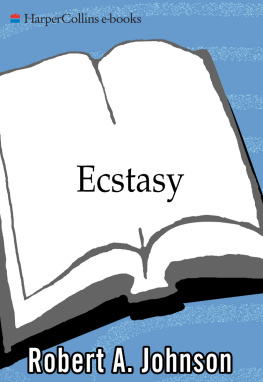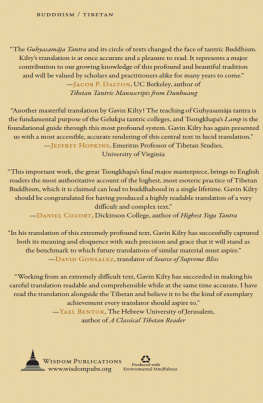Robert A. Johnson
T radition indicates that three levels of consciousness are available to us: simple consciousness, not often seen in our modern technological world; complex consciousness, the usual state of educated Western man; and an enlightened state of consciousness, known only to a very few individuals, which is the culmination of human evolution and can be attained only by highly motivated people after much work and training.
Proverbs in many languages point out these three levels of consciousness. One story, for instance, relates that the simple man comes home in the evening wondering whats for dinner, the complex man comes home pondering the imponderables of fate, and the enlightened man comes home wondering whats for dinner. Simple man and enlightened man have much in common, including a direct, uncomplicated view of life, and so they react in similar ways. The only true difference between them is that the enlightened man is conscious of his condition, while the simple man is not. Complex man, on the other hand, spends much of his time worrying and often is in a state of anxiety.
A Zen proverb states: When I was young and free, the mountains were the mountains, the river was the river, the sky was the sky. Then I lost my way, and the mountains were no longer the mountains, the river was no longer the river, the sky was no longer the sky. Then I attained satori (the Zen term for enlightenment), and the mountains were again the mountains, the river was again the river, and the sky was again the sky.
Our biblical tradition takes us from the simple perfection of the Garden of Eden through every imaginable chaos and leads us finally to the heavenly Jerusalem. Again, three levels of consciousness.
Our psychological traditions also validate the existence of these three levels. Fritz Kunkel, a psychotherapist who worked in Los Angeles from the 1930s through the 1950s, observed that human beings proceed from red-blooded to pale-blooded to gold-blooded consciousness, or from simple to superior. This was his simple way of describing the three levels of consciousness open to us. Dr. Esther Harding has pointed out that psychic energy can manifest itself in three ways: as instinct, as ego consciousness, and as investment in the Self. Man evolves from acting instinctively to putting his psychic energy under the control of his ego. Then he must evolve further, to place his psychic energy under the control of the Self, that higher consciousness that is variously called God, enlightenment, satori, or samadhi.
One looks in vain for examples of the man of simple consciousness in our complex Western world. We often project this quality onto dark-skinned minorities and women--and then resent them for it. Writing of his experiences at Walden Pond, Thoreau chronicles a complex mans attempts to regain the simplicity of his life. Our own counterculture movement of the 1960s was an attempt to restore a simplicity and contact with Mother Earth and natural living. Mahatma Gandhi urged India to retain its simple consciousness, symbolized by the spinning wheel. He would have had every Indian live a simple life, spinning his own cloth, cleaning his own house and latrine, and so on. India nicely sidestepped this advice by isolating Gandhi in its pantheon of saints, and his life has little effect on present-day India.
When I first went to India I had been warned of the horrors I would encounter--lepers, corpses on the street, poverty, maimed children, and beggars. All of this was true, and I withstood the impact of the darkness as best I could. I had not been warned, however, of the great happiness of the people. When I saw people who had so little to be happy about, living in an unshakable happiness, I was completely thrown. I was witnessing the miracle of simple man finding happiness in a rich inner world, not in the pursuit of some desired goal.
Later I inquired into the origin of the word happy and found that it derives from the verb to happen . In other words, happiness is to be found simply from observing what happens. If you cannot be happy at the prospect of lunch, you are not likely to find happiness anywhere. What happens is happiness.
Simple man lives in this consciousness and finds happiness in a rich inner world, no matter what the outer circumstances may be. Men of enlightened consciousness know this noble fact and live in a philosophy and an attitude of happiness. For them, happiness bridges the inner world and objective fact, a connection that simple man is not capable of making.
Don Quixote, who will be the carrier of simple man in our inquiry, knows the colorful world of his inner life, his imagination, but he knows it at the expense of outer fact and reality. This way of life is rich and highly durable, but it requires a superior man to maintain it in the face of outer reality. Complex man, lost to the simple attitude of happiness and not yet understanding that God is what is, remains stranded in his worry, loneliness, and anxiety. A Hindu teacher once told me that the highest form of worship is simply to be happy. This happiness is known only to simple men and enlightened ones. Complex man, in between in consciousness, remains trapped by nostalgia for the past or anticipation of the future that mostly eludes his grasp.
Driven from the Garden
A whole generation of complex men have been thrilled and vicariously nourished by such books as Zorba the Greek , which portrays a wonderful earthy Greek who experienced the vitality of his life in a direct way, and by the novels of Hemingway, whose portrayals of bullfights and heroic living gave nourishment to pale, office-bound people.
Because we have the unjustifiable opinion that complex consciousness is highly desirable, we very carefully educate our young out of their simplicity as early in life as possible. Parents are very proud if their youngsters can read and write or gain computer skills at a very early age. This often produces children who have been robbed of their childhood and been driven from their Garden of Eden much too early, and who therefore develop neuroses later in life.
Societies before the modern era and those still functioning in less-developed parts of the world believe that most people are to be left permanently in simple consciousness--in the Garden of Eden--unless they give solid proof of their ability to make their way through complex consciousness and on to higher consciousness. Thus, only a very few precocious individuals are allowed to acquire complex consciousness. Medieval Catholicism is often accused of trying to keep most of its people in a peasant state and allowing education only to those few destined to sainthood or priesthood. The Church censured Galileo not for stating a supposed falsehood, but for speaking the truth to those the Church considered unprepared to hear.


